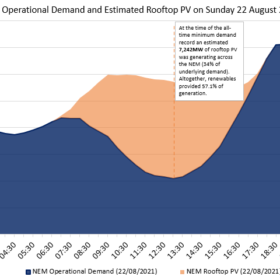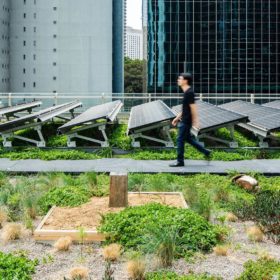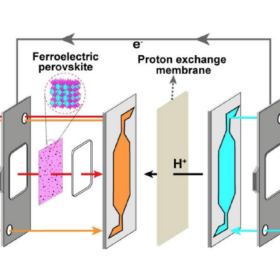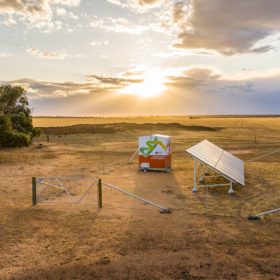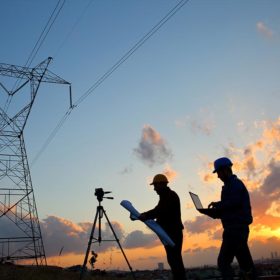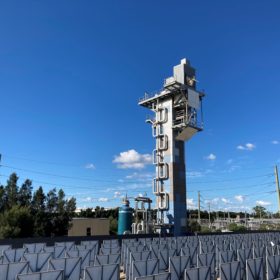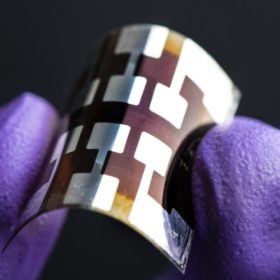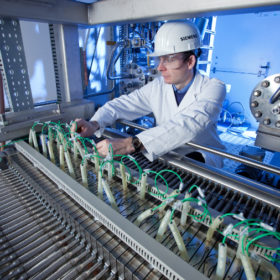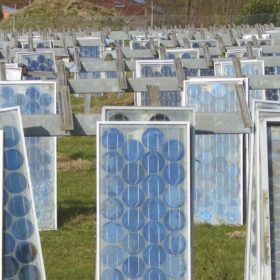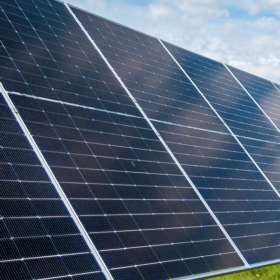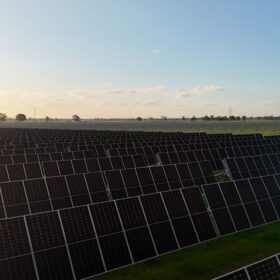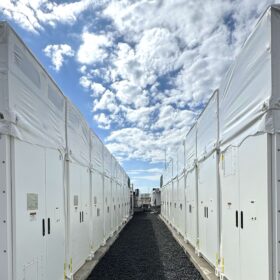Solar eclipses coal for first time, setting renewable record
For the first time in the history of our national energy market, solar generated more electricity than coal, providing 41.4% of the national market on Sunday, while coal accounted for 41.2%.
Green roof improves solar panel efficiency by 3.6% on average, study finds
The comparison of two solar cladded roofs in Sydney, one bare beneath its panels and the other adorned with native grasses and plants, has found the panels on the green roof were, on average, 3.63% more efficient, producing an average daily output 13% greater than the conventional roof. The improvements are believed to stem from the lower temperatures on the green roof, thanks to its plants – which also provided a plethora of additional benefits.
Solar-accelerated carbon-dioxide splitting to recycle a deadly greenhouse gas
Carbon never goes away, says Associate Professor Tianyi Ma, but if industrial carbon-dioxide emissions can be cleanly, renewable catalysed into chemicals and fuels that we need, we can reduce the overall GHG burden on the earth’s atmosphere.
Novel PV module recycling tech from South Korea
Developed by the Korea Institute of Energy Research (KIER), the “non-destructive” technology is claimed to enable the recovery of 100% of a module’s glass and to allow the reuse of silicon for producing new solar cells with an efficiency of 20.05%.
Saturday read: Scaling up standalone power systems
As technology redefines the delivery of network services, grid operators in remote areas the world over are searching for more cost-effective and reliable alternatives to traditional poles and wires. Standalone power systems are the solar application that is at the forefront of the switch, and they’re ramping up fast.
AEMO looks to cloud to help solve connection issues
The Australian Energy Market Operator will later this month commence testing of a cloud-based simulator designed to accelerate the grid connection process for developers of energy projects including large-scale wind and solar.
CSIRO commits to net zero emissions target
Australia’s Commonwealth Scientific and Industrial Research Organization plans to use its Newcastle Energy Centre – home to the largest high-concentration solar array in the Southern Hemisphere – as a demonstration site for its newly announced net-zero emissions targets.
Perovskite-silicon tandems could rapidly scale solar
Halide perovskites combined with conventional silicon could help solar break the 26% efficiency barrier – disrupting the technology without disrupting business systems.
Australian scientists set out to use wastewater for green hydrogen electrolysis
Australia has the sun, the wind and the space to become one of the world’s green hydrogen export superpowers in coming decades. However, the Sunburnt Country does have a dearth of one ingredient in the green hydrogen equation – freshwater. Thankfully, researchers from Monash University and a group of national water utilities are joining forces to find a way to use wastewater for the process of electrolysis.
Blockchain for PV module recycling
Next Energy and Marubeni are developing a blockchain tech for PV module inspection – with the support of the Japanese government – which they claim is able to provide data on a panel’s traceability and components as well as verifying that the data were not modified or tampered with.
